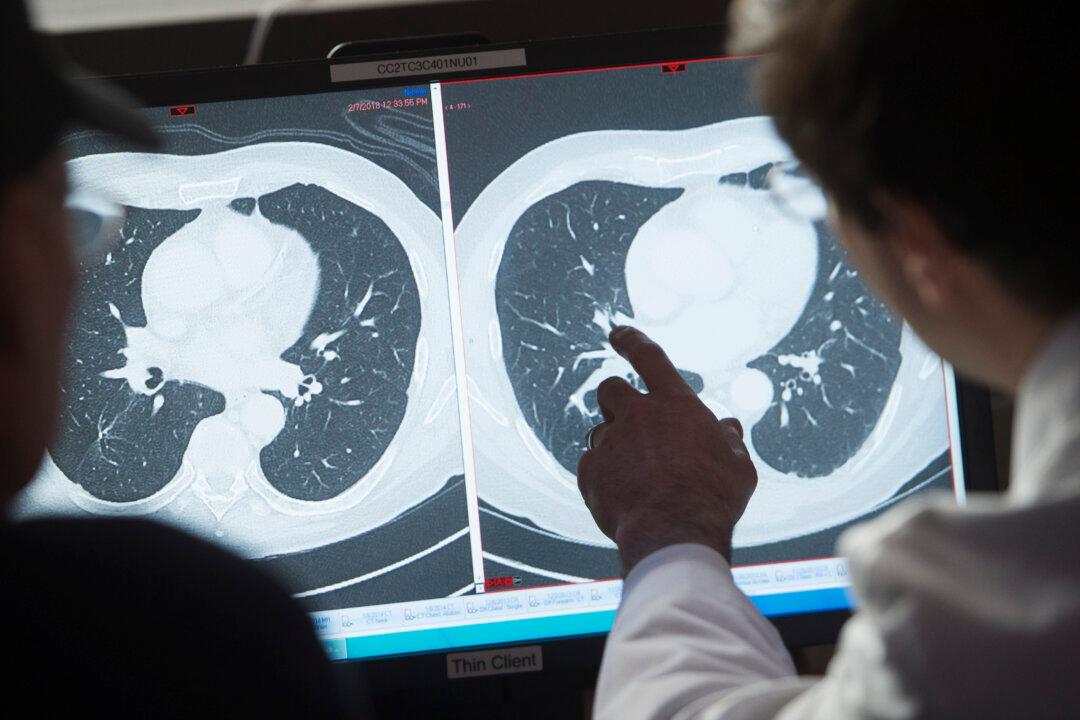More than one in four premature deaths in the UK between now and 2050 will be caused by cancer, according to a new report highlighting the economic costs of the disease.
The total annual workforce output in the UK is £6.5 billion lower than if there was no cancer, it said, adding that the workforce is reduced by 170,000 full-time workers at any given moment owing to the disease.
Cancer Cases Surging
Other research has shown that deaths from cancer in the UK have surged in recent years, with projections they will rise from more than 176,000 in 2023–2025 to around 208,000 lives lost in 2038–2040.In the new paper, OECD researchers said that, “despite advances, cancer remains a significant public health challenge in the UK” and is the leading cause of death.
The authors added: “One in four premature (before age 75) deaths (27 percent) will be due to cancer between 2023 and 2050.
“In total, there will be an estimated 50,000 premature deaths [in the UK] from cancer every year, and the average population life expectancy will be 2.2 years lower than if there were no cancer.”
The study warned that cancer costs are expected to grow in the future, and as the UK’s “population ages, this will lead to a 52 percent increase in per capita health spending on cancer between 2023 and 2050.”
Call for More Intervention
The report called for more government intervention to tackle people’s behaviour, saying, “As around 40 percent of cancer cases can be prevented by healthier lifestyles, scaling up action to tackle tobacco and harmful alcohol use, high body weight, unhealthy diets, lack of physical activity and air pollution could make a crucial contribution in curbing the growing burden of cancer.”The authors found that if the UK were to improve cancer screening, diagnosis, and treatment to achieve the best survival rates observed in the OECD and EU, this would prevent one in five premature cancer deaths, increase the population average life expectancy by six months, add the equivalent of 8,000 full-time workers into the workforce, and increase overall health expenditure by 1.3 percent.
Ian Walker, executive director of policy at Cancer Research UK, said in a statement: “This first-of-its-kind report brings into stark perspective the huge economic burden of cancer globally, as well as here in the UK—where we continue to lag behind similar countries on cancer survival.
“Our analysis shows that cancer cases are set to rise, increasing costs to our public services and the economy.”
He added that the government delivering on its commitments on cancer are “crucial to transforming the NHS in England and powering economic growth.”
Middle-Aged Deaths Rising
It comes as a separate study from the University of Aberdeen said there is a “concerning rise” in the number of middle-aged adults dying in the UK, which researchers found is not a “pandemic hangover.”Francisco Perez-Reche said the excess deaths are often “attributed to healthcare backlogs, mental health and other health problems” associated with the the era of COVID-19 and lockdowns.
But the study found the rising trend in death rates among middle-aged adults actually began in 2012.
Researchers did not examine specific causes for the deaths but suggested job insecurity, the rising cost of living, obesity, diabetes, mental health disorders, and substance misuse could all be playing a part.
Donaldson received a Wellcome Discovery Award worth £2.4 million to complete the long-term research project.







